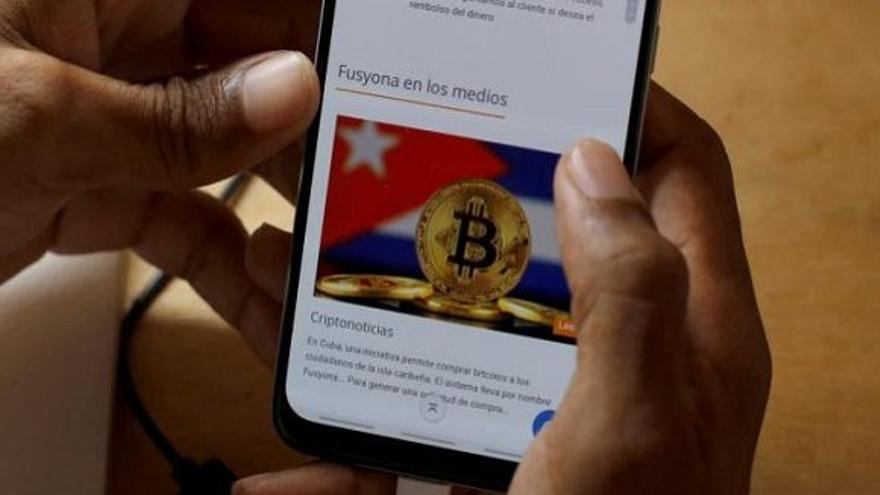Cuba has authorized cryptocurrency services and platforms. The Central Bank of Cuba (BCC) will deliver licenses to companies that wish to carry out exchange activities as a business as of May 16, the date on which the resolution published this Tuesday in the extraordinary Official Gazette comes into effect.
The norm has its origin in another approved by the BCC in August 2021 in which crypto assets were regulated in national transactions and granted licenses for providers. With the new step, virtual currency companies can now establish themselves in Cuba, moving towards a new currency, as Miguel Díaz-Canel announced just a year ago.
The resolution establishes the requirements that virtual asset service providers who wish to operate on the Island must meet. They must submit their license application to the Central Bank, which will consider the “legality, opportunity and socioeconomic interest of the initiative, the characteristics of the project , the responsibility of the applicants and their experience in the activity”. According to the text, a so-called Cryptoactive Group will issue an advisory opinion prior to authorization.
The licenses will be granted for one year, which can be extended to two, “given the experimental and novel nature of this type of activity.”
The document states that all natural persons must apply for the license, whether or not they have permission in jurisdictions other than Cuba. In the case of legal entities that are authorized in other territories, on the other hand, it follows that they do not obtain it a priori, but the text specifies that “exceptionally, for state interest, the Central Bank of Cuba, can grant a license without fulfilling this requirement.”
To make the request, the required documentation must be sent to the BCC stating the corporate purpose and bylaws, business proposal and currency to be used, the registration certificate from the regulatory authorities of the country from which it comes, the business structure and the infrastructure of risk controls, initial capital and liability policies.
The resolution also refers to the control mechanisms for “the prevention and confrontation of money laundering, the financing of terrorism and the proliferation of weapons of mass destruction.” It establishes that companies must be diligent in transmitting information “when it is reasonably suspected, due to the characteristics of the participants or the circumstances of the operation, that it is illegal.” In particular, if the transfers exceed one thousand dollars, the information must be immediate.
It is estimated that on the Island there are at least 10,000 people who use bitcoins. Last year, the BCC warned of possible scams in this area and indicated that the operations carried out by a list of companies to which it pointed had “little or no transparency and are hidden behind apparently technical phraseology, but empty of content”.
“There are many conjectures and legal traps within it,” says a tweeter who asks the Government to “keep an eye on the opportunities that web 3 and Blockchain brings”
Those companies were Mind Capital, Mirror Trading, Arbistar, Qubit Life/ Qubit Tech, X-Toro and Trust Investing, the latter being the most popular in the country and having tens of thousands of partners. Its director in Cuba, Ruslan Concepción, was arrested in April 2021 for alleged “illicit economic activity”, but was released four months later without further official explanation.
Several Cubans linked to Trust Investing were investigated since their arrest and their assets were confiscated. The platform is accused by several international analysts of operating “under a Ponzi scheme, it does not have a real product and it pays its investors with their incoming money,” although its affiliates in Cuba deny this.
The Cuban Erich García, founder of Bitremesas , has already celebrated the new legislation in which he is optimistic. However, he agrees with users who have stated that the rule does not encourage the use of crypto assets in Cuba. “There are many conjectures and legal traps within it,” says a tweeter who asks the Government “to keep an eye on the opportunities that web 3 and Blockchain brings. I only see fear in the adoption of new technologies and that is not well”.
García has improvised a survey on twitter to which, in a few hours, almost 600 people have responded, mostly linked to the sector, who consider positive in 69% a regulation that takes the business out of illegality. However, others have pointed out that it joins countries that they consider to be of dubious credibility, such as Venezuela or El Salvador, which have legalized the use of the currency and there are those who question the real usefulness of crypto assets in the current context. “A country without power, without food, without infrastructure, with the lowest Internet penetration in the Western Hemisphere, with worse development rates than most African countries has legalized cryptocurrencies, Yeeeeeeeeeeeees!!!!!!! The coyotes accept Bitcoin?”

